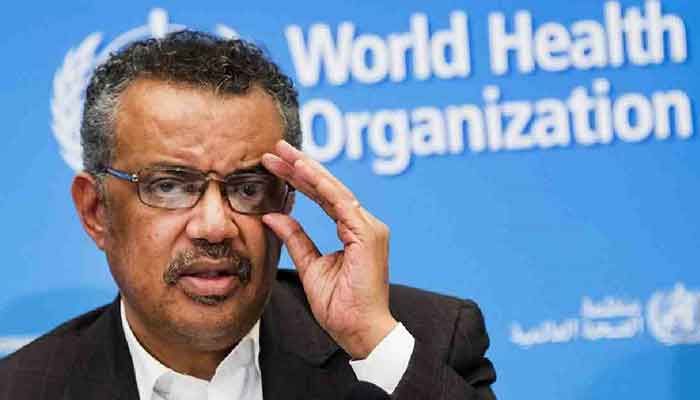
COVID: WHO Chief Calls On Govts to Vaccinate At-Risk Groups in Next 100 Days
Desk Report
Published: 12 Jan 2021, 02:20 pm

The Director-General of the World Health Organization (WHO), Tedros Adhanom Ghebreyesus, called for a "collective commitment" to get vaccinations worldwide for health workers and others at high risk of contracting Covid-19 in the next 100 days.
The chief of the UN Health Agency said this while briefing reporters in Geneva on Monday, a year on Covid's first death. The death toll stood at 1,943,943 as of Tuesday morning, reports UNB.
“Governments, manufacturers, civil society, religious and community leaders, must come together to create the greatest mass mobilisation in history for equitable vaccination," said Tedros, noting that he was pleased a WHO team was in China to assess the compliance of Sinovac and Sinopharm ahead of their potential emergency-use listing.
This is separate from another "WHO origins" mission team, whose access to Wuhan to study how the pandemic started was delayed last week. "That international team consisting of distinguished experts from 10 institutions and countries has begun its trip, in collaboration with colleagues in China," reports UNB quotting Tedros.
“Studies will begin in Wuhan to identify the potential source of infection of the early cases. Scientific evidence will drive hypotheses, which will then be the basis for further, longer-term studies," he added.
New variants
The WHO chief said yet another new variant or mutation of the virus had emerged in Japan over the weekend, while transmissibility “appears to be increasing”. Although the increased infectiousness can drive more cases, hospitalisations and deaths, “at present, the variants do not seem to show increased severity of disease", he added, offering some reassurance.
“With new treatments coming down the pipeline, we are hopeful that more lives of those with serious cases of Covid can be saved. But we need to follow the public health basics, now more than ever.”
Sequencing crucial
Most critical, said Tedros, is to effectively sequence the DNA and composition of the virus, “so we know how it’s changing and how to respond”. There may be a need to “tweak” both diagnostics and vaccines in order to keep pace with the mutations, he said.
“We call on all countries to increase the sequencing of the virus, to supplement ongoing surveillance, monitoring and test efforts," the WHO head said, adding that he looked ahead to a key meeting on Tuesday of the health agency's R&D Blueprint group, "which convenes scientists from around the world to set global research priorities for the year ahead, including on virus variants and sequencing.”